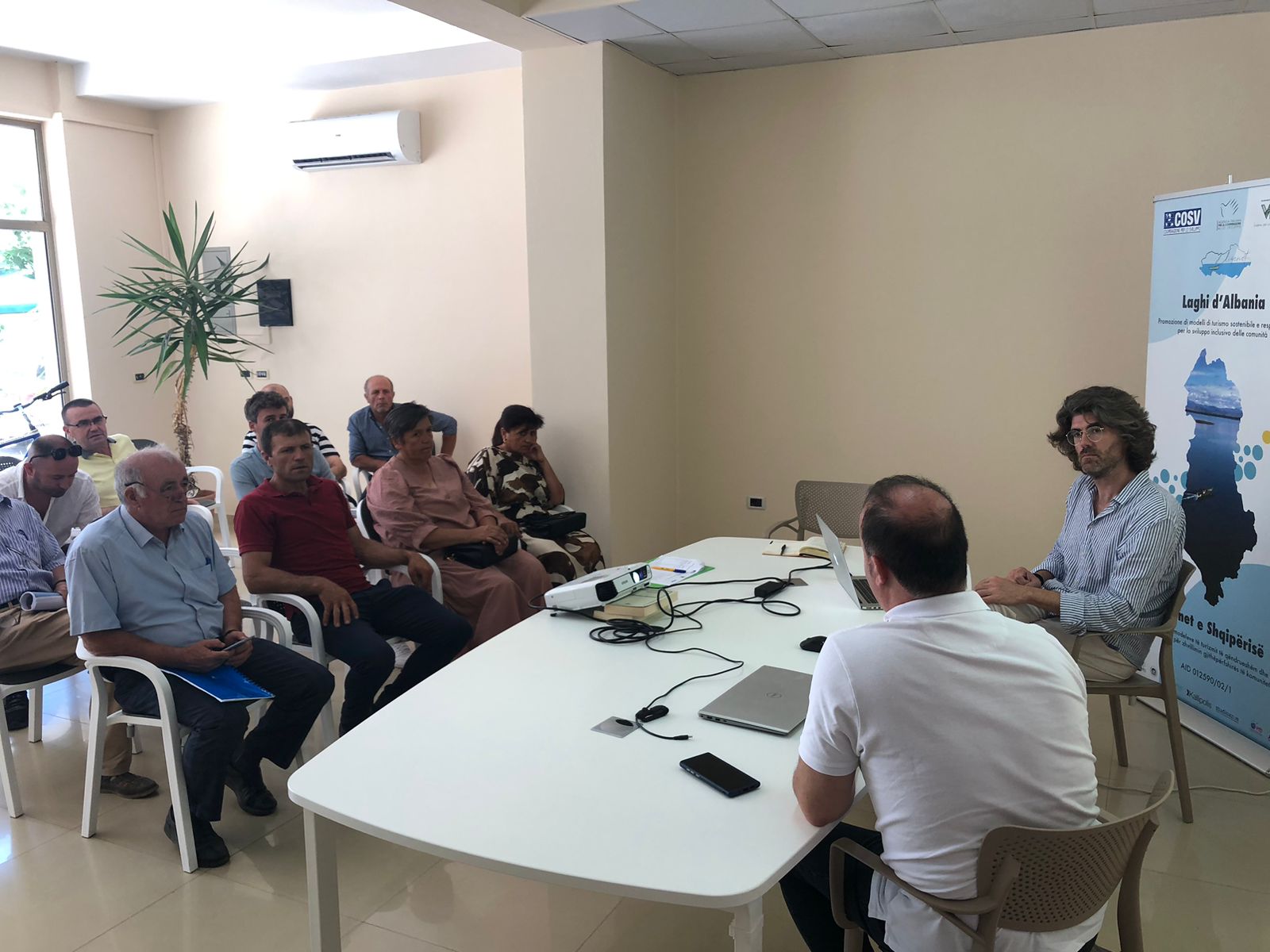From 8 to 12 July, Diesis carried out a training and coaching mission in Albania to support local entrepreneurs through the tools of the social economy.
Thanks to the training it was possible to provide local entrepreneurs with knowledge on how the social economy can give added value to their businesses. In particular, how the social value can make the company more competitive in the tourism and agricultural sectors.
Group training sessions were held with entrepreneurs coming from the areas of the southern and northern lakes of Albania. The group trainings were complemented with individual meetings for the social business plan development.
In total, more than 80 participants attended the training courses during the week. Working groups were created between farmers from the tourism and agriculture sectors, in order to promote exchange between them and peer training. Diesis facilitated the process of generating ideas of the social economy that can give added value to the companies in these rural areas of Albania.
Overall, the Lakes of Albania project intends to promote innovative models of sustainable and responsible tourism in the areas relating to the two main lakes of Albania – Lake Skadar and Lake Pogradec / Ohrid – in opposition to models of tourism and invasive development which are rapidly expanding throughout the Albanian territory, in order to contribute to an inclusive economic growth of Albania.
This multi-sector intervention intends to promote inclusive governance (CLLD), community mobilization (community- based approach) and social entrepreneurship. Moreover, the transversal themes of the project are employment (young people and women), territorial promotion and European connectivity.
The results that the project follows are:
- The governance of the two target areas is strengthened in terms of inclusiveness, sustainability and connectivity with other European and international realities
- Community ownership in the design of interventions to support the sustainable and responsible tourism sector is strengthened.
- The offer of sustainable and responsible tourism operators in the target areas is enriched and innovated
